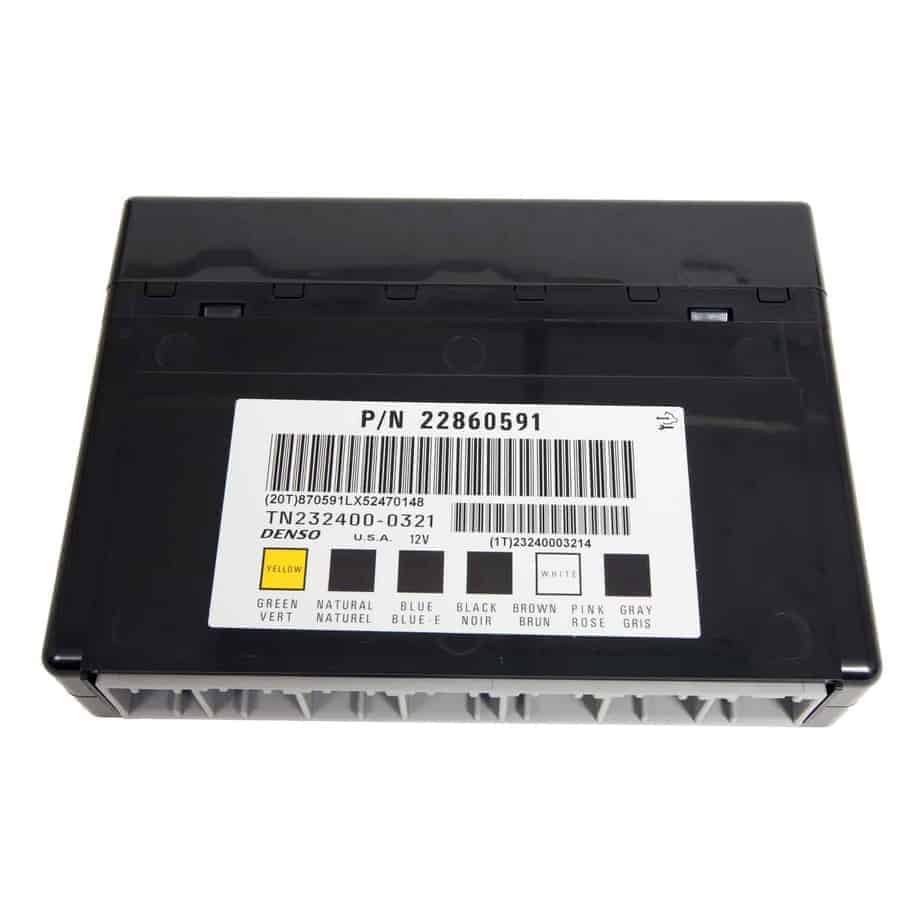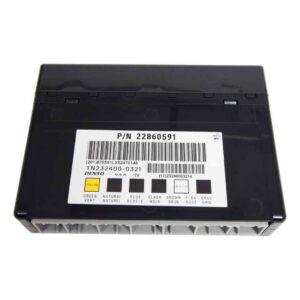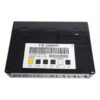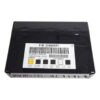Restore Your Truck’s Electrical Sanity
Are you dealing with a 2010 Chevy Tahoe that seems to have a mind of its own? Flickering lights, intermittent power windows, a radio that acts up, or even a frustrating no-start condition can often be traced back to one component: the Body Control Module (BCM). As the central hub for your vehicle’s body electronics, a failing BCM can create a cascade of bizarre, unrelated symptoms that are a nightmare to diagnose. Stop chasing electrical gremlins and get the definitive solution. This module is the reliable fix you need to restore order and get your vehicle operating as it should.
This isn’t just a replacement part; it’s a complete, ready-to-install solution. We take the hassle and expense out of the equation by programming this BCM specifically to your Tahoe’s VIN before it ships. This means no expensive trips to the dealership for programming. You’ll receive a module loaded with the latest GM software, ensuring optimal performance and communication between all your vehicle’s systems. It’s the most efficient way to solve complex electrical issues and get back on the road with confidence.
A Technician’s Notebook: The Ghost in the Machine
I remember a 2010 Tahoe that came into my bay with a laundry list of complaints from the owner. The dome lights would stay on, the driver’s window wouldn’t go down, and occasionally, it just wouldn’t crank. He’d already replaced the battery and checked fuses. After hooking up my scan tool, I saw multiple ‘U’ codes, specifically a U0140 (Lost Communication with BCM). While I always check major grounds and power feeds to the BCM first, in this case, they were solid. The BCM itself was the culprit, suffering from internal logic failure. Swapping in a pre-programmed module like this one resolved all issues in under an hour. It’s a classic failure pattern on these GMT900 platforms.
Common Signs of a Failing BCM
If your vehicle is experiencing any of these issues, a faulty BCM could be the cause. Don’t let these problems go unchecked, as they can affect vehicle safety and operation.
- ✔ Erratic or non-functional interior/exterior lights.
- ✔ Power windows, locks, or mirrors working intermittently or not at all.
- ✔ The security system engaging randomly, preventing the vehicle from starting.
- ✔ Inconsistent instrument cluster gauge behavior or warning lights (like the airbag light).
- ✔ Communication error codes, such as U0140, U0155, or other ‘U’ codes.
- ✔ Unresponsive key fob or remote start functions.
A Straightforward Guide to Installation
Installing your new 2010 Tahoe BCM is a manageable job for a confident DIYer. In most Tahoes, it’s located under the driver’s side of the dashboard, near the steering column.
- Safety First: Always disconnect the negative terminal from your vehicle’s battery and wait 10-15 minutes to allow all systems to discharge.
- Access the Module: You will likely need to remove the lower dash panel or knee bolster under the steering wheel to gain access to the BCM. It’s typically held in a plastic bracket.
- Disconnect and Remove: Carefully unplug the multiple wiring harness connectors from the old BCM. They have locking tabs that must be depressed. Once disconnected, unclip or unbolt the old module and remove it.
- Install the New BCM: Seat your new, pre-programmed BCM into the mounting bracket and connect all the wiring harnesses. Ensure each connector clicks securely into place.
- Reconnect and Test: Reinstall the dash panel, reconnect the negative battery terminal, and start the vehicle. Test all functions like lights, windows, and locks to confirm the repair.
Post-Installation Notes
Because this 2010 Tahoe BCM is the central controller for many systems, a couple of quick relearn procedures may be needed after installation. This is normal and ensures all related components are properly synced.
- Airbag System Sync: If the airbag warning light is illuminated after installation, a professional scan tool is required to perform the “Setup SDM Primary Key in BCM” procedure. This syncs the new BCM with the airbag system.
- Brake Pedal Position Relearn: On some models, a brake pedal position sensor relearn may be necessary for correct brake light and traction control operation. This also requires a capable diagnostic tool.
- No Core Charge: You can keep your old module, as there is no core charge or need to return it.
Will This Fit My Vehicle?
This Body Control Module is a direct-fit replacement for a wide range of GM vehicles and interchanges with numerous part numbers. Please verify your vehicle is on the list below and that the part number on your original module is listed here: 10382479, 15093910, 15276271, 15299986, 15819552, 15828601, 15837419, 15872388, 15872421, 15880684, 15921352, 15921353, 15948438, 15948439, 20815898, 20839063, 20864767, 20864768, 20921435, 20921436, 20935349, 22860591, 25826124, 25826125, 25847588, 25847589, 25892622, 25910474, 25934762, 25934763, 95151084.
Note: Specific options and ID numbers may apply. Please match your part number for guaranteed compatibility.
Do I need to do any programming after I receive this BCM?
No. This module comes fully programmed to your vehicle’s VIN with the latest GM software updates before we ship it. However, post-installation relearn procedures for the airbag or brake pedal position sensor may be required depending on your vehicle.
What information do you need from me?
After you complete your purchase, you will need to provide us with your vehicle’s 17-digit VIN (Vehicle Identification Number). This is crucial for us to program the module correctly for your specific vehicle configuration.
Is this a brand new part?
This is a professionally inspected and tested, high-quality recycled OEM part. We ensure it meets or exceeds factory specifications and program it with new GM software to provide a reliable, cost-effective solution.
Do I have to return my old BCM?
No, there is no core charge for this part. You can keep your original module, which can be helpful for reference if needed.



